What is PTC heaters (HVH)?
PTC stands for "Positive Temperature Coefficient" in English, which means car heater. The engine of traditional fuel vehicles generates a large amount of heat when starting. Automotive engineers use the engine heat to provide heating for the car, including air conditioning, defrosting, defogging, seat heating, and more.
However, in new energy vehicles, the motor replaces the engine, and the heat generated by the motor during operation is much less than that of the engine; The battery is used to replace gasoline, and the cells in the battery pack are also highly sensitive to temperature, requiring a certain temperature environment to ensure their safe and effective storage and conversion. Speaking of heating alone, from the perspective of energy conversion, the engine converts gasoline into heat energy through combustion, which is then converted into mechanical energy. The electric motor directly converts electrical energy into mechanical energy. From the perspective of conversion rate, the engine will waste more energy, so of course, this part of energy cannot be wasted. In cold weather, the air conditioning system can provide heating, while the heat generated by the electric motor is not enough to heat the entire vehicle and battery pack.
But what if the temperature that the human body can adapt to is limited?
Install a "warm air conditioning" PTC on the car.
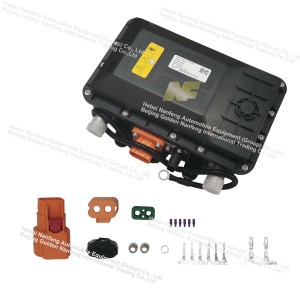
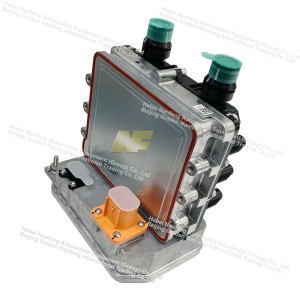
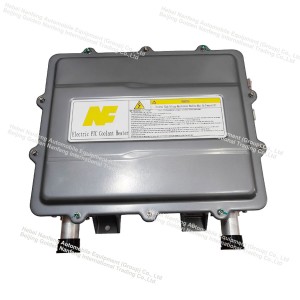
Similar to most electric heating appliances such as rice cookers, induction cookers, air conditioners, etc., PTC also generates a large amount of heat by energizing heating materials such as resistance wires/ceramics to provide the heat needed by the vehicle. If one is not enough, then add another or increase the power.
In short, new energy vehicles use PTC heaters to provide heat sources for the in car air conditioning system and battery heating system. The overall structure consists of a radiator (including PTC heating package), coolant flow channel, main control board, high voltage connector, low voltage connector, and upper shell. It is a part of the thermal management system for new energy vehicles.
Application of PTC Heater (HVH)

1. Hybrid cars (extended range, plug-in)
Equipped with a built-in fuel engine, it can use the heat generated by the engine to provide heating. With the matching of heating power and heating requirements (battery heating&passenger cabin heating), PTC heaters are not necessary. If the engine does not generate enough heat, PTC heaters can be installed.
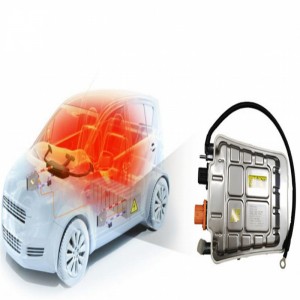
2. Pure electric vehicle
The current models on the market are generally equipped with PTC.
But there are also exceptions. Many car models use heat pump technology for heating, such as international models like Nissan Leaf VW e-golf、BMW I3、Jaguar I-Pace、Audi e-tron, There are NIO ES6, Roewe Marvel X, and Roewe Ei5 in China. However, heat pump technology has not been widely used due to its high cost and poor operation in extremely cold weather.
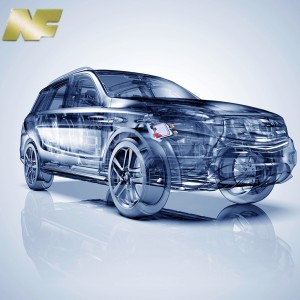
3. Fuel cell vehicles
Equipped with a fuel cell reactor, it can use the heat generated by the reactor to provide heating. With the matching of heating power and heating requirements (battery heating&cabin heating), PTC can be omitted. But if the heating power is not enough, PTC heaters also need to be equipped.
Classification of PTC Heating Systems
1. Water heating PTC heater
The principle of water heating PTC is to use the heat of PTC to heat the coolant, which will flow through the warm air core in the driver’s cabin. Under the action of the blower, the air inside the cab is circulated and heated through the heating core.
2. Air heating PTC heater
The principle of wind heating PTC is to directly install PTC at the warm air core in the driver’s cabin, circulate the air inside the car through a blower, and use PTC heater to directly heat the air inside the driver’s cabin.
3. Classified by power, ranging from 600W-30KW
4. Classify by application
1) 24V platform for large vehicles
2) Small car 12V platform
Our company produces various models of PTC heaters to meet your different needs. Please follow our company website for details: https://www.hvh-heater.com/ Or write to us: https://www.hvh-heater.com/contact-us/ .
Post time: Oct-12-2024




